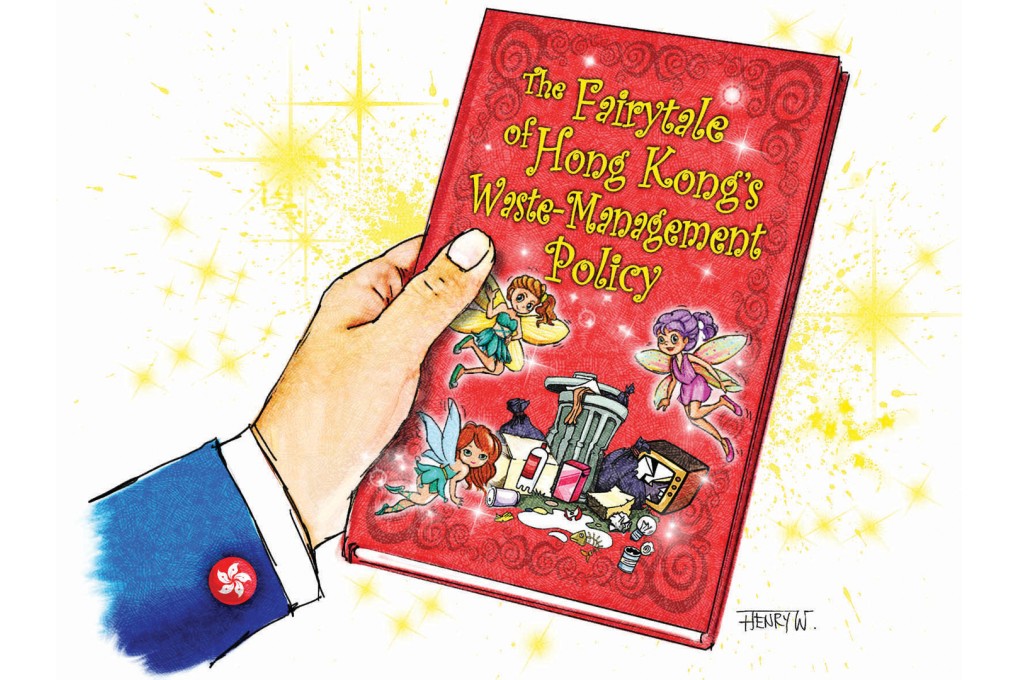Hong Kong's plan to reduce its waste enters the realm of fantasy
Tom Yam says the government's plan to reduce our waste through charging - while doing little to encourage recovery and recycling - is based on wishful thinking and won't be realised

Here's a tip for delegates coming to Hong Kong for an international conference on solid waste: skip our environment secretary's keynote address. Go to Disneyland instead. You'll be immersed in Fantasyland either way, but you'll have more fun with Mickey Mouse than Wong Kam-sing.
Wong is expected to recite his "Hong Kong Blueprint for Sustainable Use of Resources 2013-2022". The part on waste management is as fantastical as Space Mountain, but minus the thrills. To reduce Hong Kong's Waste Mountain, the Environment Bureau's goal is to cut by 40 per cent the amount of solid waste disposed of per capita, from 1.27kg per day in 2011 to 0.8kg in 2022 (no matter that the figure in fact increased to 1.33kg in 2013). The bureau insists this is achievable through charging us for the solid waste we produce, along with public education, and cites the success of South Korea and Taipei in shrinking their waste mountains.
But the bureau is wishing upon a star. A waste-reduction policy based on reality, rather than wishful thinking, has to follow an inescapable equation: waste disposed is equal to waste generated, minus waste recovered for recycling. Waste charging can reduce the amount of waste generated. But equally essential is increasing the amount of waste recovered and recycled. After introducing waste charging, South Korea reduced the waste it generated by 23 per cent, and increased the waste it recovered from 24 per cent to 60 per cent. Taipei reduced the waste it generated by 62 per cent, and increased the waste it recycled to 60 per cent. The combined effect of generating less garbage and recovering more of it for recycling is necessary in reducing the amount of waste that needs disposing of.
A further reality that the bureau wilfully ignores is that waste recovery and recycling is impossible without a mandatory, systematic programme of waste separation. Recyclable waste, such as paper, metal, glass and plastic, needs to be handled separately from waste that ends up in landfills or the incinerator. Such a programme cannot be enforced without legislation. Taiwan has introduced such laws: a Waste Disposal Act and a Resource Recycling Act, which mandate comprehensive waste separation and recycling.
Similarly, South Korea introduced a Waste Control Act and an Act on Promotion of Saving and Recycling of Waste. It takes political will to push through such a statutory framework.
Key to recovering more waste is a recycling industry that can profitably process such waste into marketable products like recycled paper, glassware, plastic items and building materials. To support its recycling industry, Taiwan has an annual recycling fund of NT$6 billion (HK$1.5 billion ). It has become a leading developer of recycling technology. In South Korea, a government-sponsored Korea Environmental Corporation provides financial assistance to the recycling industry, resulting in a substantial increase in the number of recycling companies in the country.
